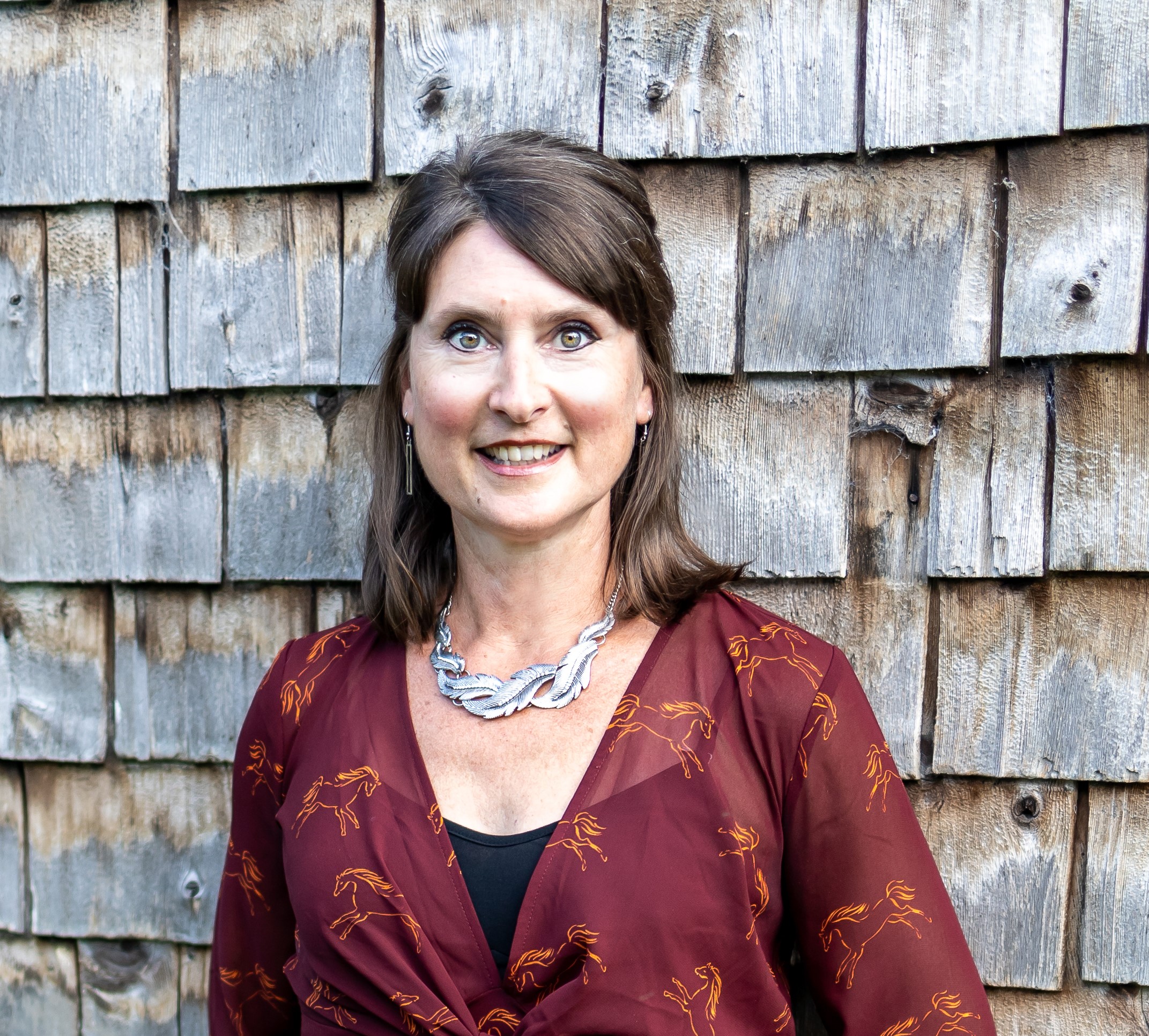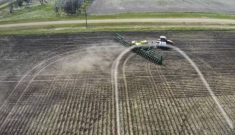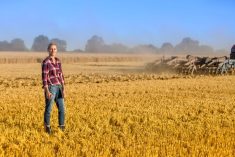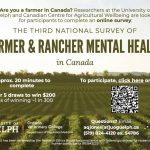How does a young animal learn to hunt? By observing the older generation.
Humans are much the same. As a social species, we learn by mimicking, otherwise known as social learning.
Social learning is the process through which we acquire knowledge and behaviours, by watching and imitating others. Like much of human social learning, transferring agricultural knowledge from generation to generation has ensured incremental development and success both globally and on the farm.
Read Also

How scientists are using DNA and climate data to breed crops of the future
A method for forecasting how crops will perform in different environments so that plant breeders can quickly select the best parents for new, climate-resilient varieties.
Agriculture has always been especially dependant on process knowledge — that is, knowing how things are done within a specific system or process. This pooled cultural knowledge is added to and passed on because it’s critical to the success of an individual or the community (e.g., the agriculture industry).
For example, a farmer once told me that she wondered why a small corner of a field had always remained unplowed, wasted. So, she plowed it — and promptly regretted it. There were too many rocks. But her dad had passed years earlier and there was no way for her to access that intergenerational knowledge.
Despite the almost unfathomable quantity of information at our fingertips via the internet, there are just some things you can’t look up online. This is especially true if the information you’re looking for is particular to your micro-environment (farm) or unique generational experiences.
Consider another example: How would I know that the space between the paddle and the deck of our silo blower should be “enough to pick up a nickel but leave a dime” unless my dad tells me this, as his dad told him? This droplet of information helps me proactively avoid wasted set-up time, a non-functioning blower or a breakdown.
More than that, intergenerational process knowledge can help us think and do better — and do more easily and efficiently. It adds an extra layer of confidence to decisions because it’s proof that someone worked through that same (or similar) situation and found the solution. Sometimes there’s a reason something has been done or not (e.g., plowing parts of a field better left alone) and learning from previous generations’ mistakes saves you headaches, money or time.
Sometimes we can even take what’s old but tried-and-true and give it a fresh coat of paint, as it were, updating it to something better still.
The Cultural Drive hypothesis states that a species proficient in teaching and transferring knowledge between generations will end up with bigger brains. “Cultural drive defines a feedback loop between social behaviours and genetics in which accurate copying of others’ behaviours selects for better cognitive skills and bigger brains,” writes Kevin Laland in the 2018 Scientific American article What Made Us Unique. “That process leads to enhanced social behaviours and technical skills and even diet — all of which results in bigger brains and ultimately greater efficiency in teaching and copying.”
So, theoretically, by ensuring that process knowledge is passed between generations we could end up with even more and better ideas. It sure worked out for the human species when increasingly larger brain sizes helped us develop tools and early agriculture.
What industry couldn’t use that type of cumulative brain power? With tighter margins and economic uncertainty, we don’t have to think twice about whether or not the ag industry could benefit from bigger brains grown through intergenerational social learning.
Knowledge crisis
Are we experiencing a crisis in generational knowledge transfer? After all, it’s become common practice that if we need to know something, we just ask Google or watch a YouTube video. We don’t need to interact with the person working beside us.
This at-your-fingertips, at-a-second’s-access to information offers businesses enormous potential. We can find answers we never dreamed of accessing just a couple of decades ago. But what’s being lost in this shift? Is the Information Highway the only way to reach our destination or can the smaller byways of intergenerational knowledge sharing still get us there?
Others in the industry are also taking note and questioning what happens if we lose the type of transferred knowledge that just can’t be found online. Evan Shout, The Farmer Coach, wrote in a recent blog post, “As (the) age demographic moves on from the farm, we will lose the knowledge factor that comes from experience in production and operations faster than ever before… Times change, advisors change, but to not respect what has happened in the past would be a mistake.”
In 1790, the Anglo-Irish philosopher Edmund Burke wrote, “We are afraid to put men to live and trade each on his own private stock of reason; because we suspect that this stock in each man is small, and that the individuals would do better to avail themselves of the general bank and capital of nations and of ages.”
Simply put, the sum of human knowledge over time is far more comprehensive and productive than that of an individual at any given moment.
Jonathan Haidt and Tobias Rose-Stockwell ponder the implications of Burke’s musings in a 2019 article in The Atlantic. “Thanks to social media, we are embarking on a global experiment that will test whether Burke’s fear is valid. Social media pushes people of all ages toward a focus on the scandal, joke or conflict of the day, but the effect may be particularly profound for younger generations, who have had less opportunity to acquire older ideas and information before plugging themselves into the social-media stream.”
Millennials (born between 1981 and 1996) and gen Z (born between 1997 and 2012) are as familiar with online technology from birth as a gen X-er like me (born between 1965 and 1980) was familiar with TV. Television was a natural part of life for my generation — and on Dukes of Hazzard Friday nights eight-year-old me would argue even a necessity. A few decades earlier my parents were as newly fascinated by TV as my 32-year-old self was by the first iPhone in 2007.
But as Haidt and Rose-Stockwell continue: “Even though they have unprecedented access to all that has ever been written and digitized, members of gen Z… may find themselves less familiar with the accumulated wisdom of humanity than any recent generation.”
Shout echoes those thoughts: “The motivation to get better, know more, learn more and listen is a skill. In the times of social media maybe we should just be quiet and listen and let those before us guide our future.”
Co-existence
So, is technology making generational knowledge obsolete? Or is there a place — a necessity— for both?
“The scale of agriculture has a lot to do with the amount of ‘traditional’ knowledge that farmers make use of,” says Carelle Sakaris, a McMaster University PhD student studying the impact of tech changes on Ontario farmers and how new machines and industrialization affect tacit knowledge in ag.
Tacit knowledge, or implicit knowledge, is practical know-how (a.k.a. process knowledge) acquired through experience and practice. Examples include personal wisdom, experience, insight and intuition.
During research for her dissertation, Tacit Terrains: Mechanization and Tacit Knowledge in Ontario Farmers, 1950-2010s, Carelle discovered that “the way technology influences peoples’ tacit knowledge depends quite a bit on the kind of agriculture they do,” she says. She points to the example of a dairy farmer who uses automatic milkers, as opposed to robot milkers. Automatic milkers mean more frequent physical interactions with cows, allowing the farmer to get to know each on an individual basis. While robot milkers can detect changes in milk colour, conductivity and other important quality indicators, daily physical interaction with each cow means that a farmer may be more in tune with each animal, potentially detecting mastitis even earlier than the robot.
Learning to spot these nuanced signs of cow behaviour and health is process knowledge that can be added to the pool of generational knowledge. Anyone who has ever flipped through veterinary care books from a century or more ago can attest to how far we’ve come because of that pooled and passed-on knowledge.
Crop farmers, on the other hand, “feel like they know more now than they used to thanks to the data-driven technologies they use in the field,” says Carelle.
Transfer of tacit knowledge typically requires extensive personal contact and regular interaction. This kind of process knowledge can only be discovered through practice in a particular context and transmitted through social networks. For instance, an apprentice, by working with a mentor, learns their craft through conversation (teaching), observation, imitation and practice.
Tacit knowledge can form the foundation for complementary knowledge, such as internet search results or on-farm data programs. This implicit form of knowledge can help us filter new information so that we efficiently choose new knowledge that fits around the gaps of what we already know to be tried and true.
“Our cultural ancestors were probably no wiser than us, on average, but the ideas we inherit from them have undergone a filtration process,” write Haidt and Rose-Stockwell. “We mostly learn of ideas that a succession of generations thought were worth passing on. That doesn’t mean these ideas are always right, but it does mean that they are more likely to be valuable, in the long run, than most content generated within the past month.”
Which brings us to perhaps the most important question: How can we collect, transfer and store the vast repositories of generational knowledge held on farms across Canada?
Chip Conley, founder and CEO of Modern Elder Academy, the world’s first mid-life wisdom school, wrote in a 2024 HBR article that “Wisdom is about having peripheral vision and anticipating the future. This is a skill that can be taught our young leaders.”
Conley says that wisdom is most useful when it’s shared because it can make teams more productive, increase employee satisfaction and retention, and helps employers understand the needs and motivations of workers. I would also argue that identifying knowledge gaps and encouraging the sharing of knowledge fosters business development.
Conley suggests implementing these wisdom management practices:
- Distill team lessons: “(A)n exchange of wisdom (can) strengthen the whole team,” he says.
- Make the wise more accessible: Conley suggests creating wisdom heat maps which focus on where wisdom is stored in the business.
- Develop “mentern” programs: Mentor + intern. “Both (generations) have a lot to share as mentors but a lot to learn as interns,” Conley notes.
- Share organizational savvy (i.e., process knowledge) intergenerationally.
Is the answer to preserving the culture pool of agriculture’s process knowledge leveraging a combination of today’s technology and yesterday’s insights?
“I would say that (technology) is neither a good nor bad change for farmers,” says Carelle.
Maybe the best thing we can do is encourage a two-way flow of wisdom, expertise and experience between older and younger generations, as Conley suggests. Add to this a powerful tool like technology and there’s no place Canada’s ag industry can’t go.
Combining knowledge for the win
Have you mapped the knowledge gaps on your farm? How are you transferring important process knowledge to the next generation?
Don’t forget that youth have a different kind of experience than older generations, namely when it comes to technology. What about gen Z or millennials inspires you? What could you learn from them?
















